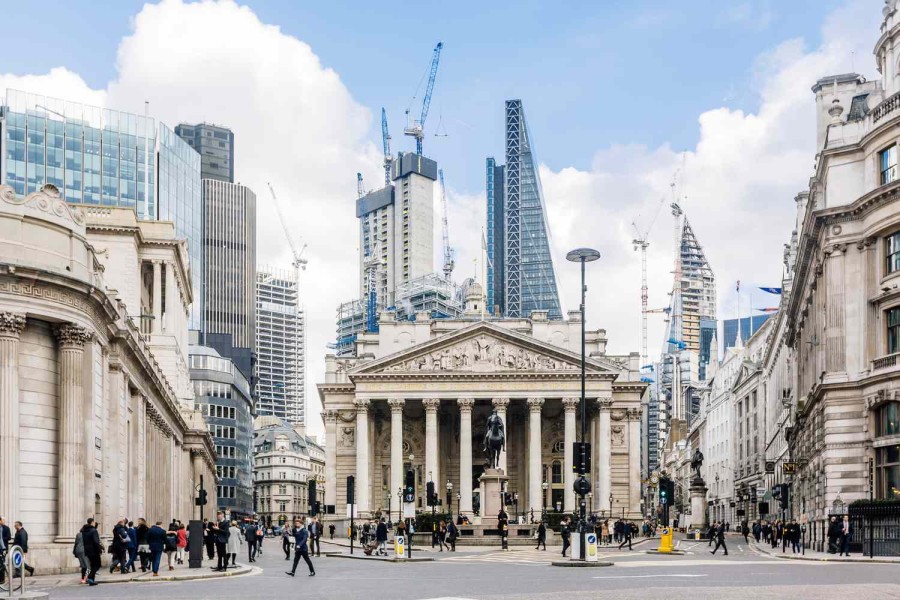Most people didn’t read the press release by the Bank of England last week carefully enough to be shocked by the admission that even though one wanted one’s digital pound and one wanted it by 2030 and trusted, wholeheartedly, that one’s educated loyal subjects were already used to fast digital payments via their portable telephones, and that blockchain was thus no obstacle to adoption, as long as it remained hidden, so the supreme guardian of the pound mused, one would need the infrastructure of such digital British money to be under the supreme control of His Majesty’s government at all times, to guarantee the smooth workings and the unfettered fair access for all mankind. Thus spake the arbiters of money.
It is the first admission of what my team and I have been saying for over 3 years, even longer. In one of our first institutional round robins, we said that “the contest will likely not be between different blockchain networks, but between the option of doing it yourself vs. using a public blockchain”. That was in 2019. Since then, more and more multinationals, banks, governments, and even NGOs have experimented with their own technologies, from Airbus to YKK the zipper manufacturer, and Zoom the video conferencing company: all have experimented with blockchain for one use case or another, and all of them had the option to build it or buy it. Many built and failed — blockchains are expensive and time-consuming to maintain.
For the government, Blockchain-as-a-Service isn’t an option. To issue the national currency, a central bank must be in control of the production and supply of the money. In the age of blockchain, that means taking a Cosmos or Stellar SDK (we think that likely) and concocting your own Poundchain, preferably with an NFT effigy of His Majesty the king, so that all the fuzz about Ordinals and Inscriptions (see last Waffle) was actually about something.
“Consumers already accustomed to fast digital payments would see few obvious differences, but the core infrastructure would be part of the central bank and could be guaranteed to be available for everyone to use.”
Guaranteed availability at this point means mostly to other government entities or government-linked institutions. The courts could run legal stuff on the Poundchain, and the BBC and the taxman would be delighted to get license fees and due taxes sent on the government’s blockchain.
It will, of course, spur further criticism, because the very unavoidable mechanisms that must give the BoE control over government digital funds will be attacked as Big Brother — ultimate proof that the government is out to get. you, surveil you, control your spending and take away your freedom.
In industry the situation is only slightly different: Amazon, BMW, CWS, Delta, EdF, Flughafen Frankfurt, the Guggenheim, Heinz Kraft, and Infineon are all working on blockchain for anything from warehousing, and customer service to supply chain management and all of them are building an in-house custom solution that is partly sandboxed and disconnected from the internet because two things we haven’t solved yet.
The one is privacy — we are still tinkering with zksnarks and zkproof, all technically dommed as is the NFT standard we are building our blockchain future on. At this point, multi-party computation is the only way to safe privacy and even that is massively flawed when it comes to government issued digital money.
The second one is #cybersecurity. We have only just woken up to the fact that blockchain isn’t safe – 4 billion were stolen from DeFi in 2022 alone, and 2023 will only get worse. With protocols like #HAPI, we finally have the inception of decentralized, community-supported defenses that could, with enough validators, turn into a veritable shield against viruses, #hacking attempts, and blockchain spam. But #digitalmoney on a national scale needs to be safer than safe, and we are far from that ideal.
Now that we have #Ordinals inscriptions on #Bitcoin, it too has been dethroned as decentralized, pure money. It is just another blockchain; #DeFi and NFT ecosystems will be built on it if you like it or not. With that “impurity” comes doubt and by and large, Bitcoin has already disqualified itself to become the digital money standard. The digital money standard can come only from inside the system, and just as a bank controls everything from the monetary policy to the printing and distribution of banknotes, it must necessarily control the infrastructure of blockchain money also.
That was the wakeup call for builders and dreamers alike: perhaps shilling your siloed idea of a blockchain isn’t the way forward, perhaps listening to your customer is indeed a necessary ingredient for success: #Blockchain-as-a-Service as a business idea may already exist, but as long as privacy and cybersecurity are such obstacles, it will be a long way before institutions and enterprise clients will give up on the idea of building their own blockchain.
#blockchaindevelopment #blockchaintechnology #cryptocurrencies#digitalassets
